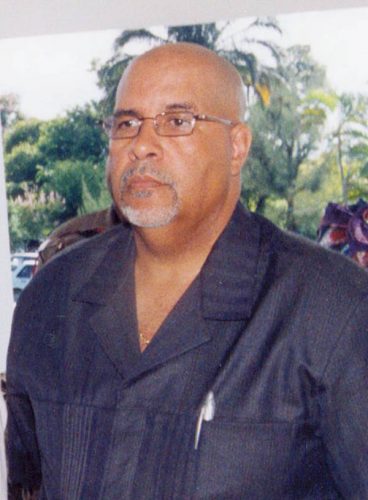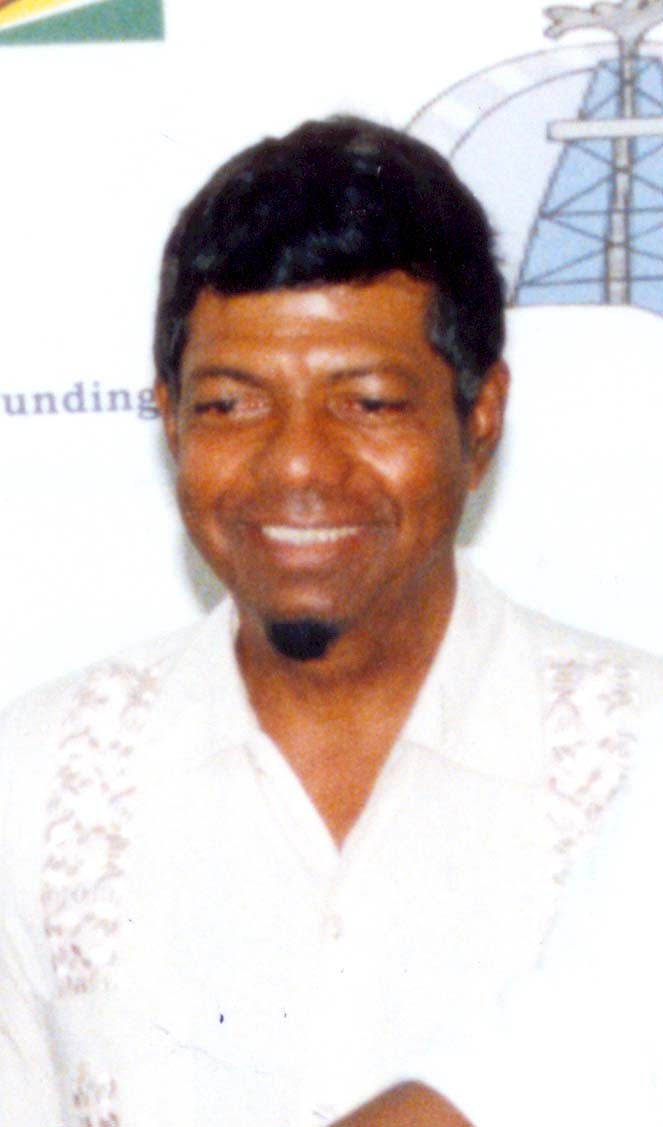Chief Executive Officer (GWI) of the Guyana Water Incorporated (GWI) Shaik Baksh has defended the company’s decision to terminate the services of more than 150 employees, one day after his predecessor called for a reconsideration of the move.
During a virtual press conference yesterday, Baksh said the company cannot sustain the current employment cost of $240 million per month.
He said with the terminations, the company’s labour cost will decline by $36 million per month or $432 million annually.

“This cannot be sustained and therefore the management of GWI undertook a restructuring and staffing rationalisation to ensure greater efficiency and productivity in our operations,” Baksh said.
GWI recently announced that 157 employees are listed to be sent home and almost half of them have already received their termination letters.
The employees are expected to receive their severance benefits by the end of this month.
The announcement came days after Baksh had disclosed that the employees would be laid off after a recent study found overstaffing at the company had severely pumped up expenditure.
He said that the company embarked on a rationalisation process about eight months ago during which an in-depth study of the organisation was undertaken.
Baksh pointed out that the employment cost of the organisation had moved from $96 million per month in 2015 to $240 million in 2020, which he called a “staggering” 140 per cent increase.
However, during a press conference on Thursday, former Managing Director of GWI Richard Van West-Charles described the layoffs as “unjustifiable”.
He said it signals increased inefficiency within the company and reduced service, more so in light of the COVID-19 pandemic.
“So I ask the board and the management of GWI to reconsider these matters as a matter of urgency taking into consideration the operational efficiency of the company and the demands of the COVID-19 pandemic,” Van West-Charles said.
“…Be mature and say that you made a mistake and reinstate these workers and seek to grow and protect us from the situation with COVID,” he added.
Van West-Charles’s call was supported by former APNU+AFC Minister with responsibility for Housing and Water Annette Ferguson, who said it is “unfair” for such a high amount of persons to be placed on the breadline at a time when the country is facing the pandemic.
Bad state
Van West-Charles said on Thursday that when he took up office in 2015, the company was in a bad state.
As a result, he said hiring of more staff was necessary to complete a series of projects.
“When we came into office, we met a series of wells with carbon steel casings that were rotting, eroding and they had to be rehabilitated. Eleven out of the eighteen were done with in-house staff. With in-house staff, they rehabilitated over 81 wells over the four years,” Van West-Charles stated.
“So between 2016 and 2020, we had no contractors doing maintenance of wells. No contractors doing the maintenance of vehicles. Meter reading and bill delivery which were done by contractors……so a lot of these contractors were bought on board….We used our in-house staff to do many other things such as tiling of the boardroom,” he added.
In addition, he said more staff were also hired to improve the water supply across the country.
“So the move was done to bring staff on board of the company to do a number of things and so the service improvements were in a number of areas,” Van West-Charles said.
According to Van West-Charles, there were a number of achievements under his tenure which included the establishment of laboratories in Regions 3, 4, 6 and 9, the drilling of 48 new wells, the increase in water treatment plants and the increase in the hours of water supply to residents.
“We established flushing teams, some of the residents in Georgetown and East Coast would have seen flushing in the evenings. That requires staff….We introduced new technology where people had to use geophysical logging technology….so you have more precision in the drilling when looking for water,” he pointed out.
He further noted that revenue moved from $3.2 billion to $5.25 billion.
Baksh yesterday said that the cut in the company’s workforce will not affect services and it will not lead to more outsourcing than that which occurred in the company over the last five years.
“It will not…..I want to stress that after the rationalisation there will not be more outsourcing than that which has occurred in the company over the last five years. This will not happen,” Baksh said.
Due process
Baksh also reiterated yesterday that due process was followed through this procedure.
“The Board of Directors of GWI was integrally involved in all the decision processes leading up to this termination in accordance with the Termination of Employment Act. Also we ensured that the Ministry of Labour and the recognised trade union was involved, was notified and discussions were held,” he said.
According to Baksh, management was tasked with ensuring that this exercise was done in a “fair” and transparent” manner.
GWI Executive Director of Human Resources Elvis Jordan stated at the press conference that the process affected all the regions across the country and almost every department in the company.
“There wasn’t any form of profiling in terms of coming up with who were to be retrenched or not. It was a clear process where there were clear determinants in terms of the criteria we use to arrive at this decision,” Jordan said.
Among the criteria which were used was the LIFO (last in first out) method. He said there were cases where general work performance and staff output were also reviewed in this process, Jordan said.
Jordan further noted that in 2019, the company experienced difficulty paying staff.
“This was a reality…..From a financial economic position, we had to move to this position in terms of the reorganizing and the rationalisation of staff,” he said.






